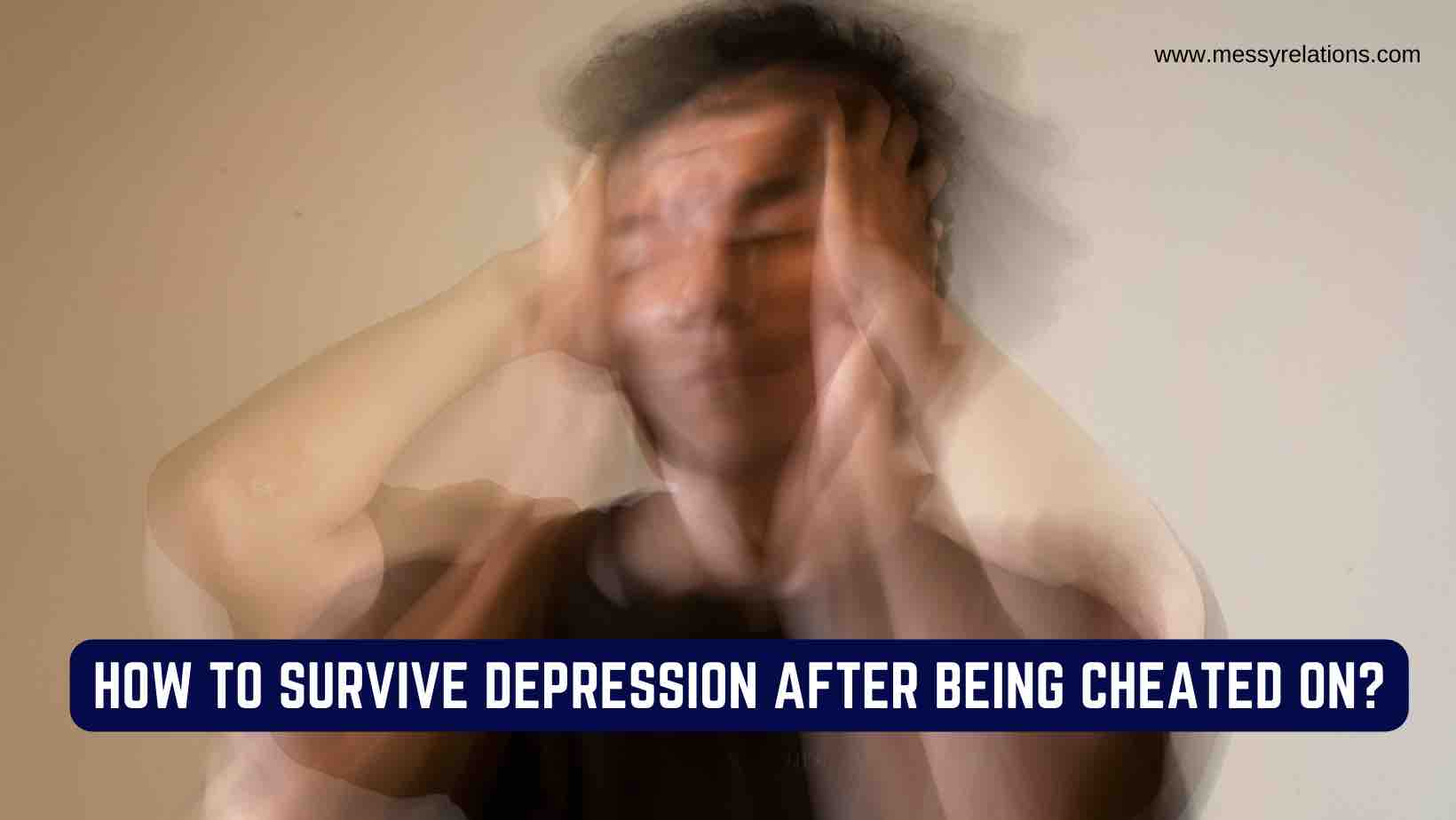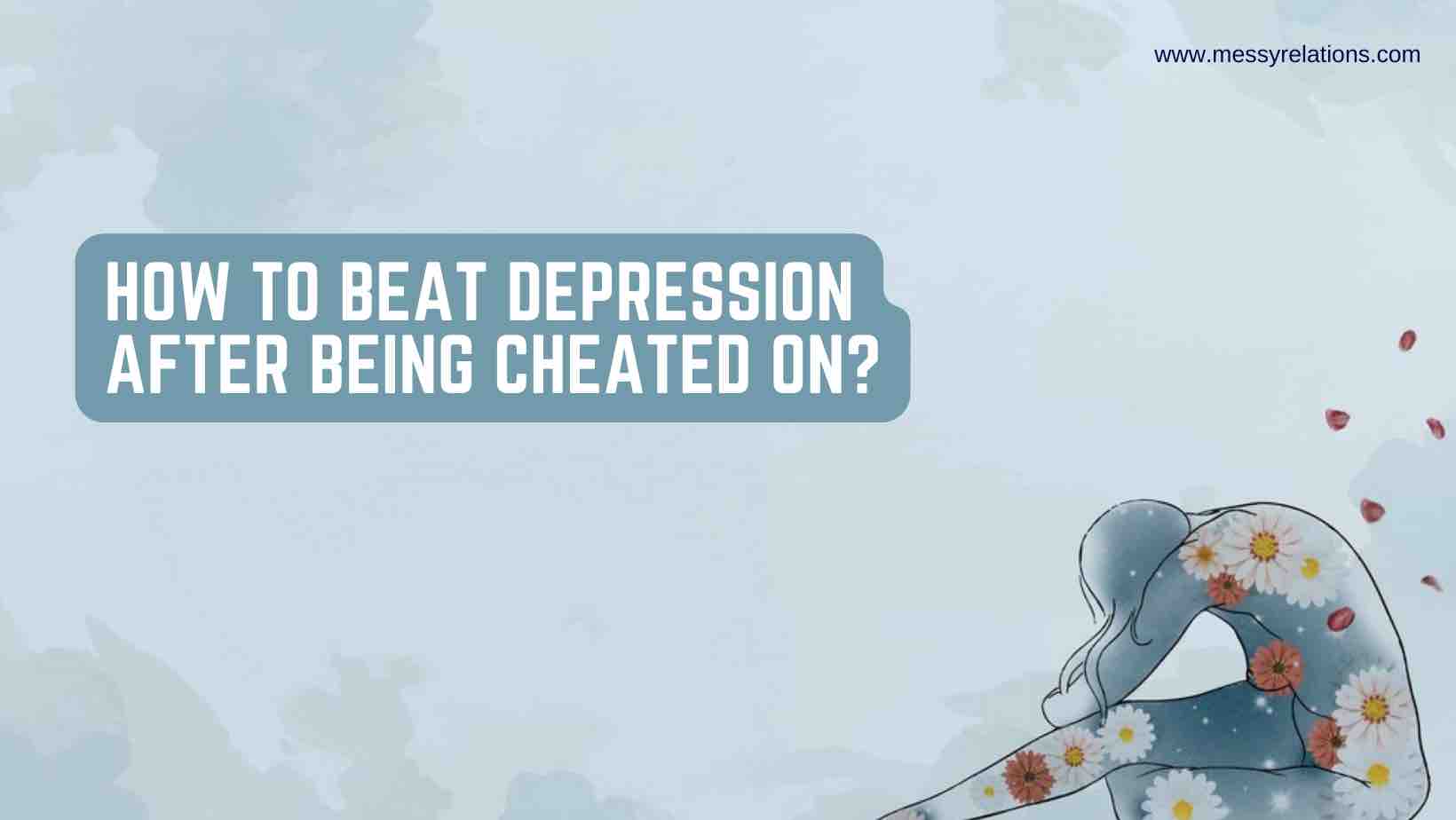In the wake of infidelity, many find themselves grappling with a profound sense of betrayal, leading to depression after being cheated on. Here’s some guidance and support to those facing this challenging time. We’ll explore practical steps and emotional strategies to help you heal and move forward.
1. Understand Your Feelings
First, it’s essential to acknowledge and understand your emotions. Feeling depressed after being betrayed is a natural response. Allow yourself to grieve the loss of trust and the relationship as you knew it. Recognize that these feelings are valid and a normal part of the healing process.
2. Seek Support
Do not isolate yourself. Reach out to friends, family, or a support group. This is an essential step to beat depression after being cheated on. Sharing your experience with others who understand can be incredibly healing. Consider professional help. A therapist can provide valuable tools to work through your emotions and offer a safe space to express your feelings.
3. Follow Self-Care Strategies
Prioritize self-care. Engage in activities that bring you joy and relaxation. Whether it’s exercise, reading, or a new hobby, find what works for you. Self-care also means eating healthily, getting enough sleep, and avoiding harmful coping mechanisms like excessive alcohol or substance use. These strategies help you get through depression after being cheated on.
4. Rebuild Trust in Yourself
After experiencing betrayal, it’s common to doubt your judgment. Work on rebuilding trust in yourself. Reflect on your inner strengths and past challenges you’ve overcome. Remember, the infidelity was not a reflection of your worth or decision-making.
5. Setting Boundaries
If you’re in contact with the person who cheated, set clear boundaries. Decide what you are comfortable with and communicate your needs. This step is crucial in maintaining your emotional well-being and regaining a sense of control over your life. Sometimes its best to keep a distance. Cut off with them if you think that will help. Dealing with depression after being cheated on is your priority not theirs so see what works for yourself and then act on it.
6. Finding Forgiveness
Forgiveness is a personal journey and doesn’t mean excusing the betrayal. It’s about freeing yourself from the hold this event has on your life. Forgiving is a process and takes time. Be patient with yourself as you navigate this path.
Surviving depression after being cheated on is a journey of self-discovery and healing. It’s a path filled with ups and downs, but with the right support and strategies, you can emerge stronger and more resilient. Remember, it’s okay to seek help, and you’re not alone in this experience.
FAQs – Frequently Asked Questions
1. What are the first steps to take when dealing with depression after being cheated on?
When you first learn about infidelity, it’s vital to acknowledge your feelings and give yourself permission to grieve. Recognize the impact of this betrayal on your mental health and consider reaching out to a support network of friends, family, or a professional counselor who can provide guidance and a listening ear.
2. How can I rebuild trust in myself and others after being cheated on?
Rebuilding trust starts with yourself. Reflect on your inner strengths and remind yourself that the infidelity was not a reflection of your worth. Gradually, as you heal, you can start to extend trust to others, taking it one step at a time and setting clear boundaries to protect your emotional well-being.
3. Is it normal to feel a range of emotions after being cheated on?
Absolutely. It’s common to experience a rollercoaster of emotions, including sadness, anger, confusion, and even moments of relief or clarity. These feelings are all part of the healing process, and acknowledging them is crucial in moving forward.
4. How important is self-care in coping with depression after infidelity?
Self-care is fundamental. It’s about taking steps to look after your physical, emotional, and mental health. This can include activities like exercise, pursuing hobbies, ensuring adequate rest, and avoiding negative coping mechanisms. Prioritizing self-care helps in regaining a sense of normalcy and control in your life.
5. Can forgiveness help in overcoming depression after being cheated on?
Forgiveness is a personal process and it can play a significant role in healing. It’s not about excusing the betrayal but about letting go of its emotional hold over you. This journey is different for everyone, so it’s important to move at a pace that feels right for you.
6. When should I consider professional help for dealing with depression after being cheated on?
Consider seeking professional help if you find your emotions are overwhelming, if you’re struggling to cope with daily life, or if you simply need someone to talk to who can provide an objective perspective. There’s no shame in seeking support; it’s a sign of strength and a step towards healing.
7. How can I maintain a healthy perspective on relationships after experiencing infidelity?
Maintaining a healthy perspective involves understanding that this experience doesn’t define all relationships. It’s about learning from the experience, understanding your needs and boundaries in a relationship, and not rushing into a new relationship until you feel emotionally ready.




